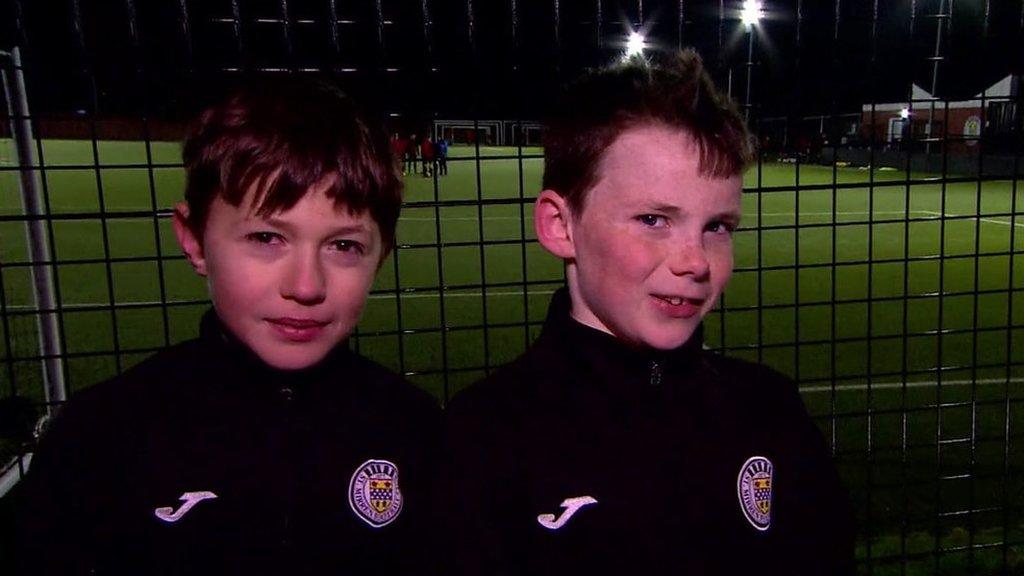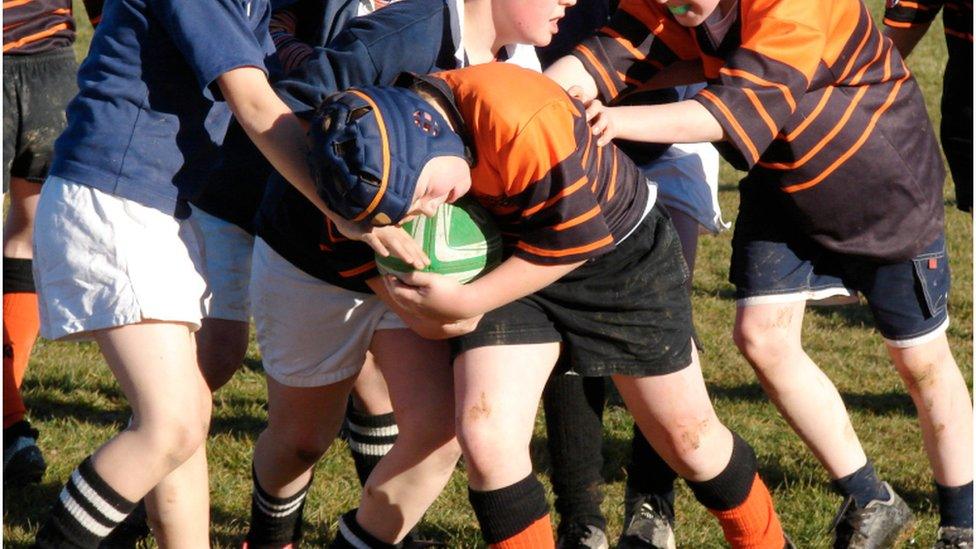Heading ban for children during football training
- Published
Should young people head footballs?
Children under the age of 12 have been banned from heading footballs during training.
Players will be allowed to use their heads during matches, but headers will be banned in practice or training sessions.
The new guidelines apply to children in England, Scotland and Northern Ireland, but not Wales.
The new rules have been brought in following research that shows a possible link between football and the brain condition, dementia.
WATCH: 'There's no down side' to header ban, says under-12s coach
In the USA, children under 10 are already banned from heading footballs and there are also restrictions on players aged 11-13 doing headers during football training.
Last year, former England player Ryan Mason called for the ban.
This is because he was forced to retire after fracturing his skull during a challenge in a Premier League game.
He now coaches Tottenham Hotspur's under-18 team and suggested that children should use sponge balls to learn the technique rather than heading harder footballs.
One of the big arguments for the ban is a type of head injury that football players can suffer called 'concussion'.
It happens when someone gets a significant bang on the head - so much that the brain is shaken and knocks against the inside of the skull.
This causes the nerves and structures in the brain to be altered, which means messages aren't sent around the brain in the right way.
Concussion injuries are also common in other sports including boxing, skiing and rugby.
How did the decision to ban heading come about?
A study released in October 2019 reported the first possible links between former footballers and brain disease.
The report suggested players could be three and a half times more likely to die of dementia.
Dementia can make it difficult to remember things. People might forget who family members are. They might get lost or they may forget what everyday objects are called.
It can make people behave in a way that they've never done before. They may become very upset, sad or angry - and find it difficult to deal with these feelings.
Since then discussions over what to do about it have been taking place.
Although there remains no firm evidence linking heading the ball to dementia, the Scottish FA's doctor John MacLean says limiting head contact for younger players is common sense.
"We need to take some sensible, pragmatic steps at the moment and that's largely going to be about trying to reduce that overall burden, the overall [number of] times that young players head - and heading in training is much more common than in matches," he said.
What do you think about the FA's heading ban?
Let us know in the comments.
- Published16 January 2020

- Published15 February 2019

- Published2 March 2016

